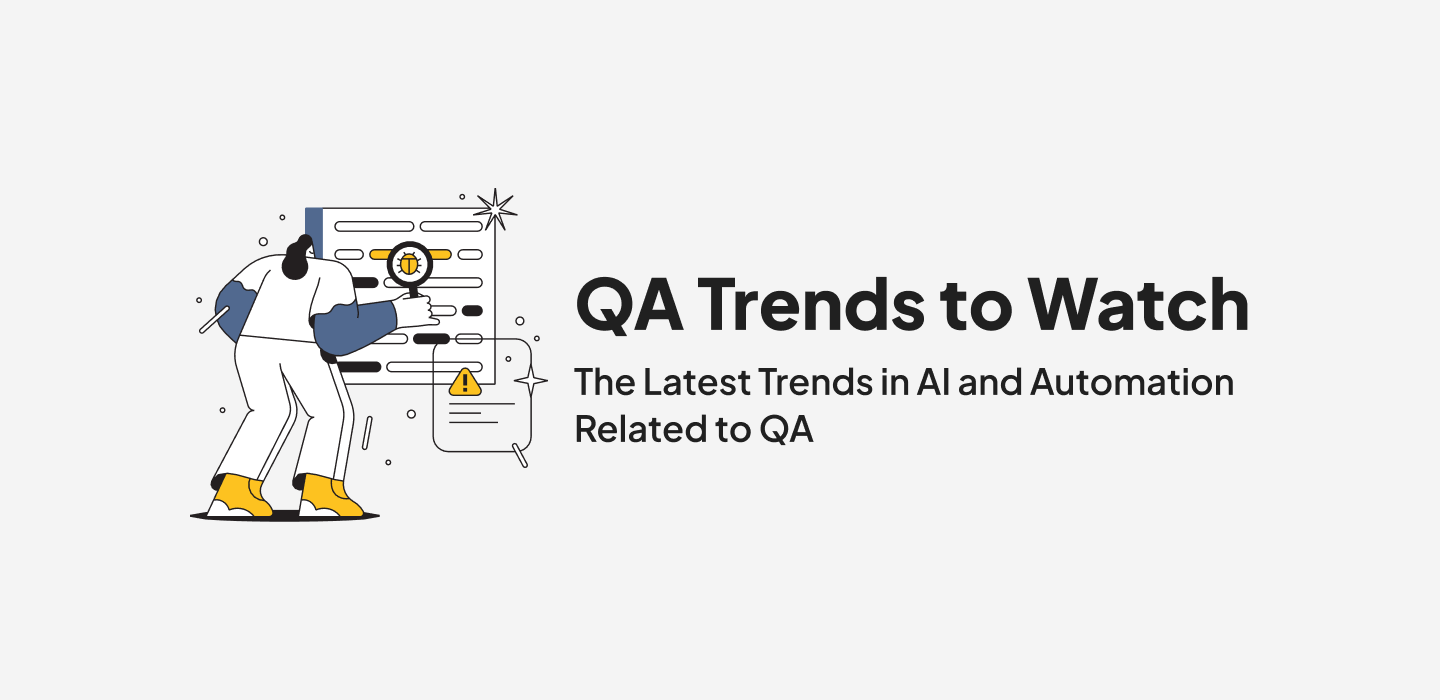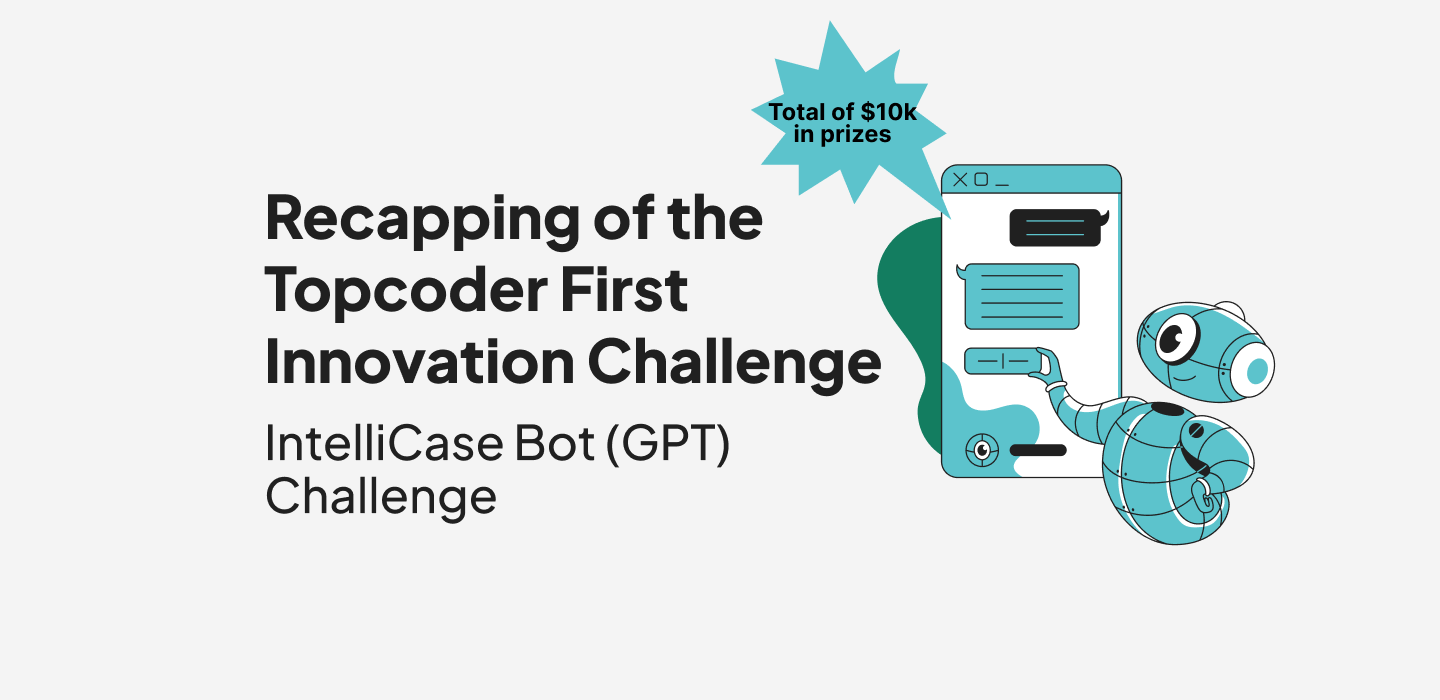February 29, 2024 ALL ABOUT INNOVATION CHALLENGES AT TOPCODER
Each month, our platform hosts Topcoder Innovation Challenges aimed at addressing intricate technological challenges. The challenge model, and innovation challenges in particular, offer a novel way for our customers to solve problems by tapping into a community of proven global experts. Topcoder’s proven model ignites excitement and innovative thinking, as talented minds compete to find the best possible answer to tough problems. Instead of settling for one solution, you can accelerate innovation through multifaceted crowd problem solving. From integrating GenAI into your product, to proving the efficacy of an algorithm, Innovation Challenges put your ideas in front of the world’s most talented experts at Topcoder, making it possible to experiment, execute, and launch at scale.
HOW DO INNOVATION CHALLENGES WORK?
Innovation challenges supercharge productivity and creativity by inviting participants from all over the world to tackle the toughest and most common problems in tech and AI. Since most organizations suffer from cognitive fixation and group think, innovation challenges offer a powerful way to remove the traditional work barriers—opening problems up to communities with different education, skills, and experience to provide solutions. You get the benefit of multiple approaches from a diverse group of technology experts.
Many innovation challenges consist of a series of smaller competitions that build on one another, with solutions gaining complexity and relevance to the problem as the series progresses. Innovation challenges are opt-in, meaning Topcoder members can see the competitions and pick the things that interest them. We focus on the most pressing issues within the industry, and tailor these challenges to highlight and cultivate highly sought-after skills. For example, we recently ran a series of competitions with a special focus on AI innovation. With new Challenges launching on the Topcoder platform every month, there’s ample opportunity for new projects to launch.
INNOVATION IN ACTION: THE CANCER IMMUNOTHERAPY DATA SCIENCE CHALLENGE
A wide array of technical problems can be solved through innovation challenges, including in the areas of life-saving bio-medicine. Last year, Topcoder took part in the Cancer Immunotherapy Data Science Grand Challenge, hosted by The Eric and Wendy Schmidt Center at the Broad Institute of MIT and Harvard, in conjunction with Harvard’s Laboratory for Innovation Science and other collaborators. The three-part competition centered on the question of how to make T cells, the fighter cells of our immune system, better at killing cancer cells.
While scientists have tested some genetic modifications, or “perturbations,” to T cells in the lab, there are too many possible perturbations — and combinations of perturbations — to solve experimentally.
Since the 2010s, scientists have been able to generate a wealth of data about our genes, cells, and tissues, enabling breakthroughs in patient treatment. Unfortunately, the methods to analyze this data have lagged behind. This is in part because machine learning experts have mostly worked at tech companies and financial industries, and not in biology. The goal of this innovation challenge was to use machine learning to analyze this data, to help identify which perturbations could make cancer immunotherapy more effective.
More than 1,000 people registered for the challenge, including some with no prior biology experience. As part of the challenge, participants were provided with a bio crash course as well as the data, then asked to predict the effect of genetic modifications on t cells, and propose metrics for evaluating the success of those changes.The winners approached the problem using different deep-learning methods depending on the chosen input features. These features include gene expression and “chromatin accessibility,” the degree to which genetic information encoded in DNA can be accessed and read. Additionally, some of the top-scoring participants incorporated learned representations from variational autoencoders — models that can capture meaningful features from raw data — or graph neural networks constructed based on the gene ontology database. Now, researchers at the Schmidt Center are further studying the top-scoring algorithms to see if they can combine components from each into an even better predictive tool.
This exciting, potentially life-saving work is just one example of the type of high-level problems that can be solved through Innovation Challenges at Topcoder. To learn more about Innovation Challenges, go here.
“Data science challenges are an increasingly important way to direct machine learning enthusiasts toward scientific discovery.”
– MarcAntonio Awada, Head of Research and Data Science at the Digital, Data, and Design Institute of Harvard University
Annika Nagy


